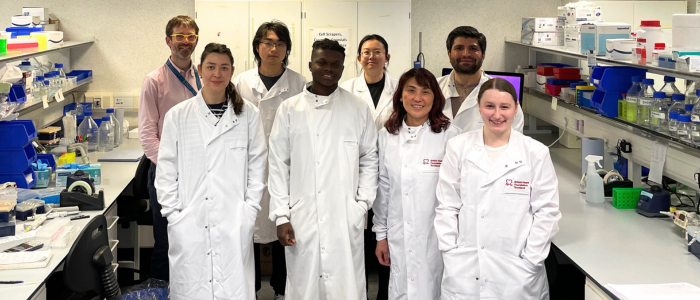University secures beLAB1407 funding for new heart drug
Published: 29 October 2024
Evotec will support work being undertaken by Professor Will Fuller and his team to co-develop small molecules targeting a well validated ion transporter implicated in cardiac arrhythmias.

The University of Glasgow is partnering with a leading biotech company to develop a new drug that will improve the lives of patients with heart disease.
Evotec will support work being undertaken by Professor Will Fuller and his team to co-develop small molecules targeting a well validated ion transporter implicated in cardiac arrhythmias.
The backing is in the form of beLAB1407 Funding which was launched by Evotec and pharma company Bristol Myers Squibb to identify new disease-modifying therapeutic targets and platforms with the goal to develop these to new spinout companies.
The beLAB1407 award to Professor Fuller’s team represents the first for the University since the scheme - which bridges discovery science into investment-ready opportunities ready for preclinical development - was widened out last year to include more institutions.
The team’s new findings offer the opportunity to address an age-old problem in securing selectivity which has hampered the development of safe and effective therapeutics drugs for this important class of targets.
Using a combination of Evotec’s medicinal chemistry expertise coupled to the cardiovascular know-how of the Glasgow team, the project aims to deliver novel hits with proof of concept in a variety of models.
Prof Fuller, UofG lead Principal Investigator on the project, said: “This partnership is a fantastic opportunity for the medicinal chemistry expertise at Evotec to enable a massive leap forward in a research project that we’ve been working on for many years in my laboratory.
“This type of work is usually really difficult to accomplish in an academic setting.
“We are really excited that the beLAB1407 funding will allow Evotec and University of Glasgow to work in partnership to develop a new drug to improve the lives of patients with heart disease.”
When the University joined the beLAB1407 consortium last year, Uzma Khan, Vice Principal of Economic Development and Innovation, said it would significantly enhance the University’s ability to generate positive impact in the context of drug discovery and on patient care.
She said: “This initiative is a hugely important addition to our innovation eco-system in Scotland for biomedical research.
“It will provide our researchers with access to valuable pharmaceutical industry expertise along with resources that can support the translation of disease-related scientific discoveries into value propositions that can attract investment for further pre-clinical and clinical development.”
BeLAB1407 was launched in 2021 with the Universities of Birmingham, Dundee, Edinburgh and Nottingham as founding partners to identify and advance novel and breakthrough drug discovery opportunities across therapeutic areas.
Under the expanded beLAB1407 agreement, the Universities of Bristol and Glasgow as well as Queen Mary University of London will benefit from access to funding, expertise and drug discovery and development platforms spanning multiple disease areas and modalities.
Main caption: Professor Will Fuller (back left) with members of his research team. Back Row: Mr Mingjie Bai, Ms Ran Tao, Dr Caglar Gök. Front Row: Ms Emma Dunning, Mr Samuel Adu, Dr Chien-Wen Kuo, Ms Eleanor Dickson-Murray.
First published: 29 October 2024

